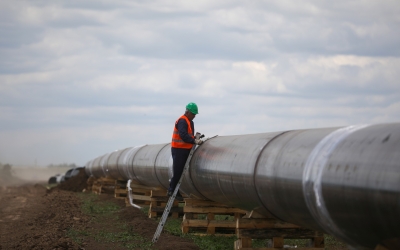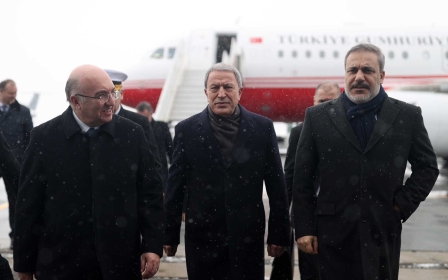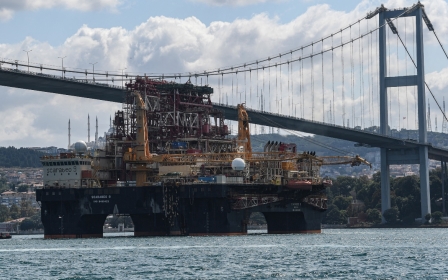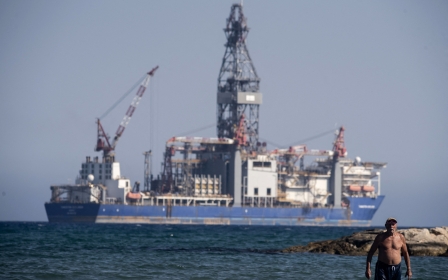Turkey boosts energy ambitions with Bulgaria gas import deal
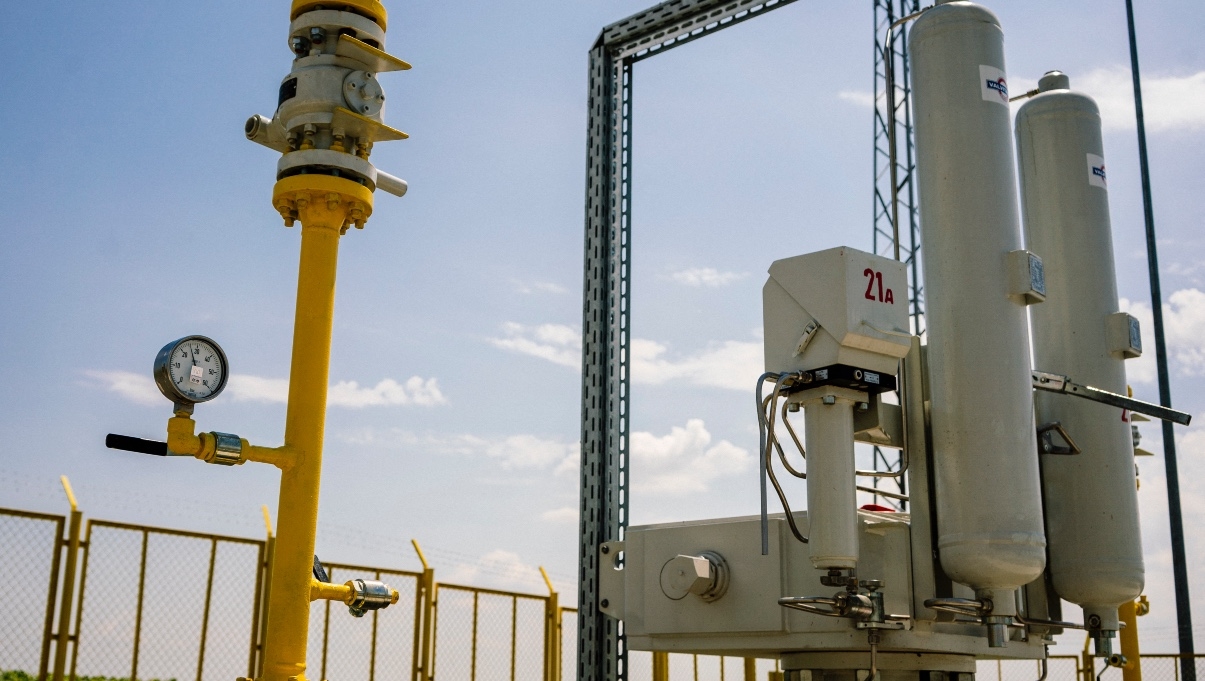
Bulgaria on Tuesday signed a long-term deal to access Turkey's liquefied natural gas (LNG) terminals, a move that could help diversify the region’s gas supply away from Russia and advance Turkey’s aim to be a regional energy hub.
The agreement between Bulgaria state-owned gas operator Bulgargaz and Turkish state gas firm Botas will allow the EU country to unload LNG at its neighbour's gas terminals and use the Botas network to transport gas.
New MEE newsletter: Jerusalem Dispatch
Sign up to get the latest insights and analysis on Israel-Palestine, alongside Turkey Unpacked and other MEE newsletters
"Thanks to this agreement, we secure the possibility to buy gas from all international producers and unload it in Turkey, where it's most convenient for us logistically,” Bulgaria interim Energy Minister Rosen Hristov said after the deal was signed.
"The agreement is important for increasing the security of deliveries in the Balkan region," Turkish Energy Minister Fatih Donmez said.
Bulgaria is one of the poorest countries in the EU, and for decades almost fully relied on Russia to cover its annual needs of about three bcm of gas a year.
Moscow suspended deliveries to the country of 7 million in April, after Sofia refused to pay in rubles in the wake of Russia's invasion of Ukraine.
The 13-year-agreement would enable Bulgaria to transport up to 1.5 billion cubic metres of gas a year, meeting about half the country's domestic energy needs.
The agreement is a win for Turkey, which hopes to position the Thrace region bordering Bulgaria as an energy hub for the wider region. In December, Romania agreed to import Azerbaijani gas via Turkey.
There is an energy shortage in Europe following the European Union's decision to cut Russian gas imports by two-thirds, following the invasion of Ukraine and unexplained explosions on the Nord Stream pipelines, which effectively cut Russia's exports to the continent.
Turkey perceives the situation as an opportunity to become a gas trade hub that could set a benchmark and supply the region using a blend of gas coming from Russia, Azerbaijan, Iran, and even LNG shipments. Ankara is investing in new LNG storage capacity and exploring new gas import deals.
Some have raised concerns that Turkey could provide a backdoor for Russian gas to enter the EU market.
“Thanks to this agreement, we are now able to purchase gas from producers all over the world,” Bulgarian Energy Minister Rosen Hristov told reporters. He said Bulgaria cannot control what gas enters the country, but that it would not signs deals for LNG deliveries from Russia.
Middle East Eye delivers independent and unrivalled coverage and analysis of the Middle East, North Africa and beyond. To learn more about republishing this content and the associated fees, please fill out this form. More about MEE can be found here.


